9+ Sample Property Management Contract
-
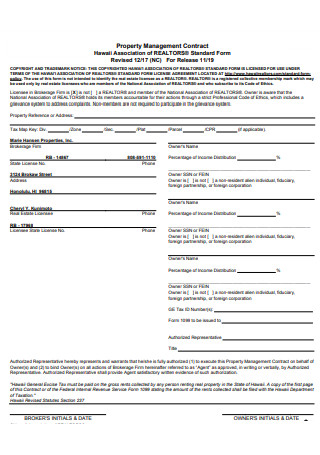
Property Management Contract Template
download now -
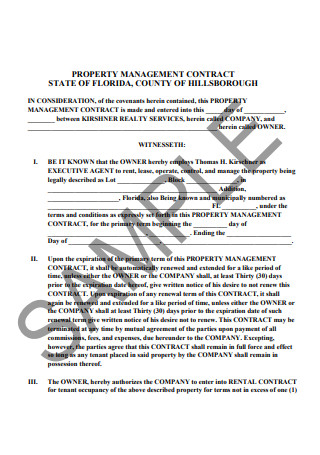
Sample Property Management Contract
download now -
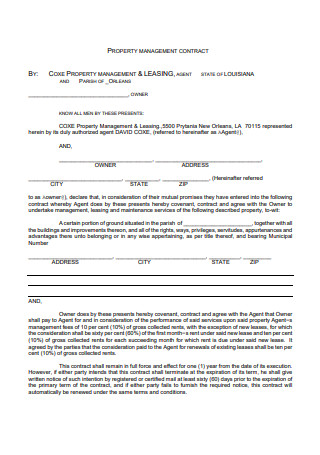
Formal Property Management Contract
download now -
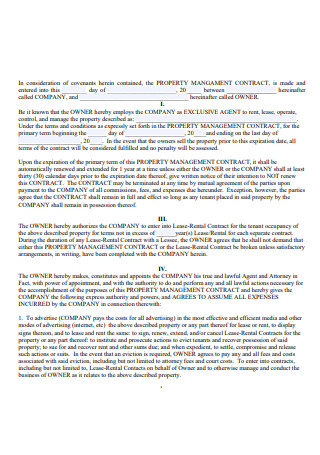
Basic Property Management Contract
download now -
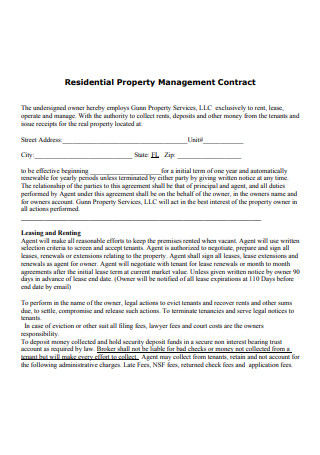
Residential Property Management Contract
download now -
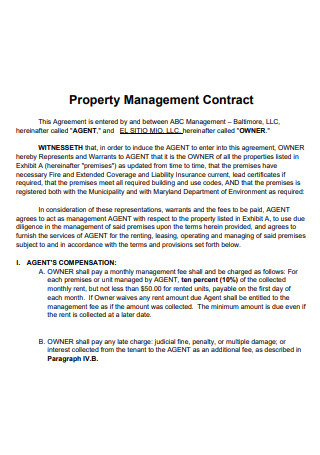
Property Management Contract Example
download now -
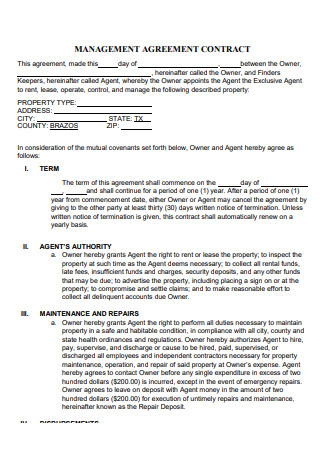
Property Management Agreement Contract
download now -
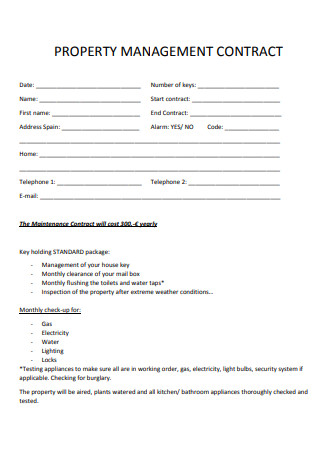
Simple Property Management Contract
download now -
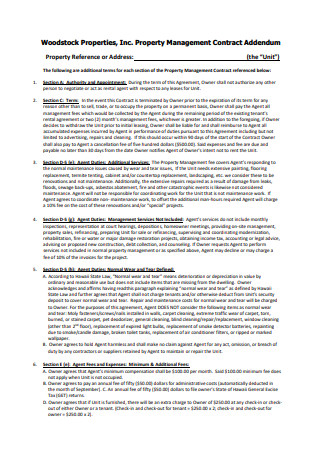
Property Management Contract in PDF
download now -
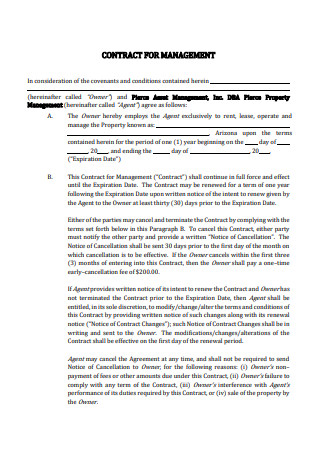
Standard Property Management Contract
download now
FREE Property Management Contract s to Download
9+ Sample Property Management Contract
What is a Property Management Contract?
Purpose of a Property Management Contract
What is Inside a Property Management Contract
FAQs
What is the Purpose of a Property Management Contract?
What Should be Included in a Property Management Contract?
What is a Property Manager’s First Responsibility to the Owner?
For owners and a property management company to arrive at a mutual agreement with a shared understanding of how the arrangement shall play out, a property management contract is usually prepared by the latter. In this article, we discuss what exactly a property management contract is, what it includes as well as the responsibilities that a property manager shall fulfill in compliance with the contract. Read more below and avail our samples to start creating a contract of your own!
What is a Property Management Contract?
A simple definition of what a Property Management Contract is is that it is a legally binding agreement between a property owner and another party, usually either an individual or a company, that they hired to look after their real estate properties.
An expounded definition is that it includes all information about how the property should be managed, the responsibilities that the property manager or company shall perform all throughout the duration of the property management agreement and, like most contracts, it also includes information on legal liabilities in order to protect both parties in the case that a situation occurs that warrants a review on what was agreed upon for accountability to be demanded from the party that violates the agreement and so as to prevent court intervention which just gets messier and more expensive the longer it gets dragged and unless truly necessary, we wouldn’t want to get to that point, right?
Purpose of a Property Management Contract
Of course, the mere existence of a property management contract could call for an inference that it serves a purpose. Aside from the common function that it serves to protect the parties involved or that it makes an agreement between a property owner looking to hire a property manager legally binding, we list down some other purposes that a property management contract is able to provide.
1. It provides clarity.
A well-drafted property management contract clearly and comprehensively outlines all the responsibilities that a property manager has to accomplish as they manage the property throughout the contract term especially if there are specifics that the property owner wants especially taken care of.
Not only does it lay out all that needs to be done, but it also includes as well what shouldn’t be done or be avoided as much as possible otherwise, penalties will be incurred and a couple more consequences. It also limits the extent through which a property manager is capable of, especially since not all management companies provide similar services.
2. It serves as documentation.
Especially if the contract is written and there is a physical document proving that such an arrangement between a property owner and a property management company or individual exists, it will be easier to prove when a breach of contract is made and its following consequences. Aside from that, it also best represents the agreement between the parties involved. This is why a written agreement is encouraged for arrangements such as this or for any type of arrangement involving money or having to rely on someone else to keep hold of your possession. Although, a verbal agreement is, as a matter of fact, possible. It just will be hard to keep track of what involves the agreement more so if a contractual dispute occurs.
3. It provides a structure.
Actually, contracts in general detail how the agreement will be executed therefore serving as some sort of framework governing the parties involved ensuring the business transaction to go smoothly all the while abiding by local regulations with regards to the land and the tenants.
How the property manager performs is a direct reflection of what was stated in the contract so it is then important that the instructions on how to properly handle the property are clearly detailed.
4. It ensures the negotiation runs smoothly.
A chunk of a property management contract is that it includes information of how the same contract can be terminated and the legal liabilities that both parties are accountable for. It lists the reasons that could serve as grounds for contract termination especially for business partnerships that want to call early termination and how this shall be executed.
Basically, it assures the parties involved that if completion of the contract period is not possible, an out is without having to undergo complicated and dragging procedures.
More than that, contracts by nature prioritize satisfaction from the parties involved otherwise, a contract would have ceased to exist.
5. It sets expectations.
For property owners, they want to be sure that the property manager they’re relying on is competent to fulfill the task of managing their property. A property management contract assures the owner that they can expect their property to be taken care of. Not only does a contract help establish expectations, it also manages them especially if the contract is clear about what should and must occur during the whole duration of the contract term which is why it is important that a contract clearly defines the duties that only the property manager shall perform. Aside from knowing what to expect about how the property will be managed, it also sets reasonable expectations with regards to the fees for the rendered service.
Responsibilities of a Property Manager
To create a property management agreement is only one of the many things that a property manager is responsible for delivering. We decided to include this in the discussion of what a property management contract is because inside the contract, the kind of service that a property manager renders is one of its elements. For property owners, it is important that you have made an agreement with a capable property manager and for individuals who aspire to become professional property managers, this section is dedicated to you.
First of all, a property manager is any individual or a company that houses property managers whose primary role is to substitute a real estate property owner uncommitted to taking the responsibility of managing their property. However, ‘managing’ does not encompass the entirety of what a property manager does because their responsibilities go beyond just overlooking daily real estate property operations.
The duties and responsibilities required from a property manager can be likened to that of the property owners themselves therefore it falls under a wide range of roles. That being said, you can say they work similarly as an assistant of some sort to the property owner. Some of their roles include:
What is Inside a Property Management Contract
A well-written contract is one that is crafted with intention to meet and ultimately satisfy the needs of the parties involved. While property management contracts may differ in some areas depending on the kind of property that is to be managed or if the property owner is meticulous with regards to managing the property that they decide to personalize a property management company’s standard contract, there are some inclusions that are generally shared by all kinds of property management contracts. Some of these are defined below:
1. Services and fee structure
This part of the contract discusses all the kinds of services that a property manager shall perform during the contract term. It also can indicate the services they are unable to deliver so as to set boundaries and get rid of having to take responsibility for an assumed expectation from the property owner. Along with the services, the contract shall also include the cost of these services and the kind of structure it will follow. For example, some property managers might charge a monthly percentage of the total rent income. Included in this section are the supplemental fees for additional services that a property owner will want from the property manager.
2. Responsibilities of a property manager
A separate section in the article expounds on the basic but most important roles that a property manager has to fulfill during the duration of the contract. This includes the search for a qualified tenant, establishing and collecting rental fees, coming up with lease terms and the terms and conditions that a tenant has to adhere to during their stay in the rental property. This can be included in the services section of the contract.
3. Responsibilities of a property owner
A good number of contracts includes information on what can be expected from the property owner. This can include the kind of insurance that the property owner needs to carry out or the allocation of funds that sees to it that there will be enough monetary support if maintenance, repairs and emergencies are needed. In addition, the contract can also outline the limitations of a property owner which most times restricts them from funding tenants.
4. Contract length
It is important that both parties are able to identify the length of the contract which, of course, shall be present in the contract as well as a clause that permits the option for contract renewal upon expiry.
5. Legal liabilities
In order for the property management company to protect themselves from false accusations of not delivering their end of the contract, a section can be intended just for that. Some other instances are when the property manager is accused of damaging the rental property only for it to be inflicted by a tenant. This section in the contract can shield the property manager from taking responsibility for it.
6. Termination clause
A contract shall define the reasons as to why either of the parties may want to terminate the property management contract which makes it all the more important that a clause dedicate to the termination of contract is included in the document. Some other subjects with regards to this clause can include the proper way to communicate intentions of termination which will call for a notice of cancellation to complete the contract. Termination fees shall also be written so as not to carry the financial burden of early termination.
FAQs
What is the Purpose of a Property Management Contract?
A property management contract legally binds a property owner and a property manager to an agreement that outlines the responsibilities they should perform during the contract term and what to expect from each other.
What Should be Included in a Property Management Contract?
There are key elements that a property management contract is composed of regardless if the provisions differ depending on the kind of rental property or special requests from the property owner. These are:
- Services and Fee Structure
- Responsibilities of a Property Manager
- Responsibilities of a Property Owner
- Contract Length
- Legal liabilities
- Termination Clause
What is a Property Manager’s First Responsibility to the Owner?
Owners usually come to a property management company to market their rental properties in a way they can generate from it. The first responsibility of a property manager is to then evaluate a precise estimate of the property’s profitability.
